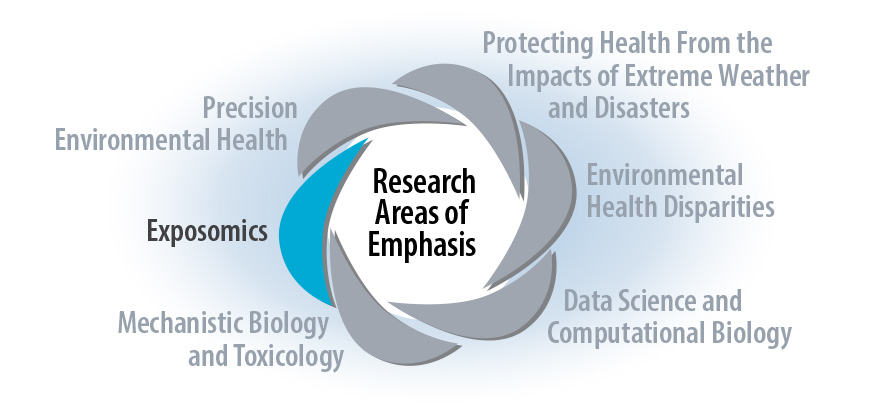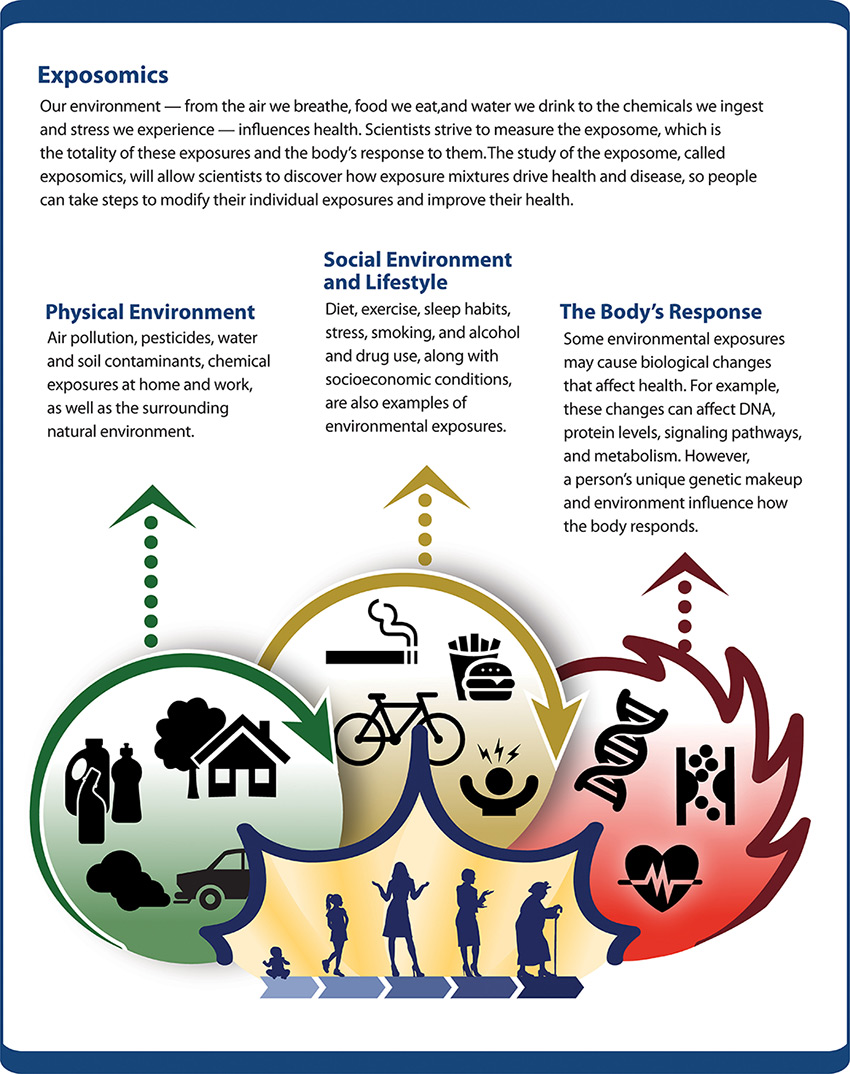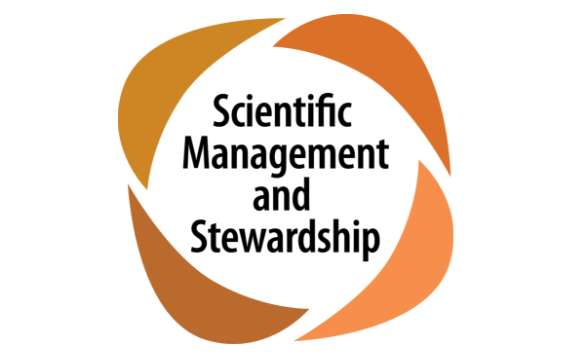Research Areas of Emphasis

The exposome is the integrated compilation of environmental influences across an individual’s lifetime. Defined broadly to include chemicals and pollutants, physical agents, diet and nutrition, exercise, therapies, and social determinants of health, many in the environmental health sciences community consider exposomics, which is the study of the exposome, to be the environmental counterpart to genomics. The growth of this field has led to a paradigm shift in environmental health research. Considerable efforts will be focused on developing an operational framework for collecting and integrating exposomic data, including multi-scale integration of data on exposures and biological responses across time points. This, in turn, will enable data-driven discovery and hypothesis generation to identify which environmental stressors have the most potential to impact health. Understanding the interactions of the full exposome will yield more effective approaches to health promotion and disease prevention.
Translational Goal
Develop the ability to understand interactions across the exposome for the purpose of generating, and sharing, a more complete picture of positive and negative environmental effects on health, including disease risk, progression, severity, and management.
Priority Approaches
- Continue development of new methods for multiple exposure measurement. For example, increase capacity for geospatial and wearable exposure assessment, as well as integration of measures of external exposures with analysis of biological samples.
- Enhance the rigor and reproducibility of exposomics through the development of data standards, harmonization of analytical methods, and integration of disparate data types at multiple levels.
- Develop retrospective measures for life course studies, such as validated biomarkers including epigenetic modifications, that can be used to quantify exposures over an individual’s lifespan.
- Continue development and dissemination of approaches in model systems to enable efficient interpretation and validation of findings from exposomics studies.
- Explore the feasibility of designing a human exposome atlas as a reference for understanding the variability and correlation patterns in the human exposome, including signals of disease.

Other Strategic Plan Sections

Crosscutting Themes
NIEHS is committed to collaborations and partnerships across its endeavors to successfully contribute to the critical work of NIEHS.

Capacity and Infrastructure
NIEHS research activities depend on robust investments in capacity and infrastructure to ensure readiness for their success.

Scientific Management and Stewardship
NIEHS prioritizes scientific stewardship and operational principles that align with the institute’s commitment to advancing human health and understanding the environment’s impacts on human health.


